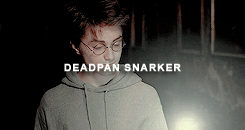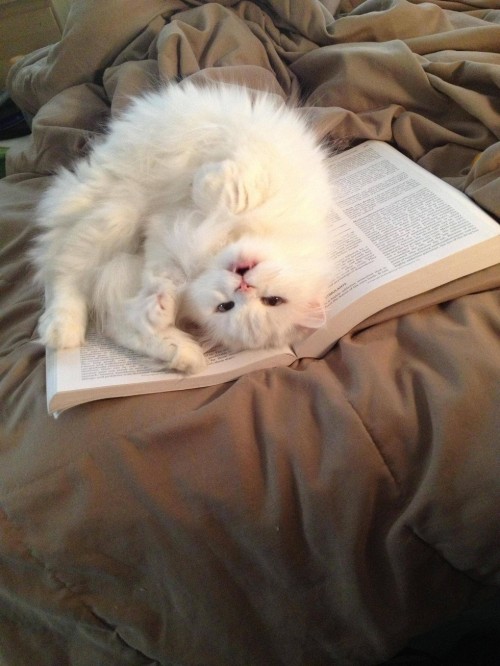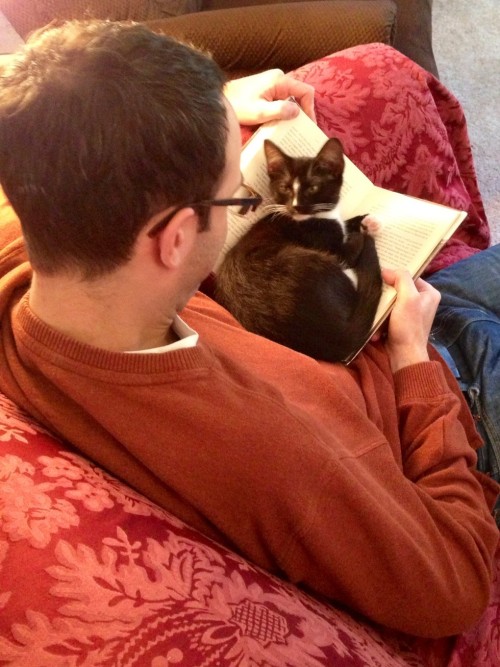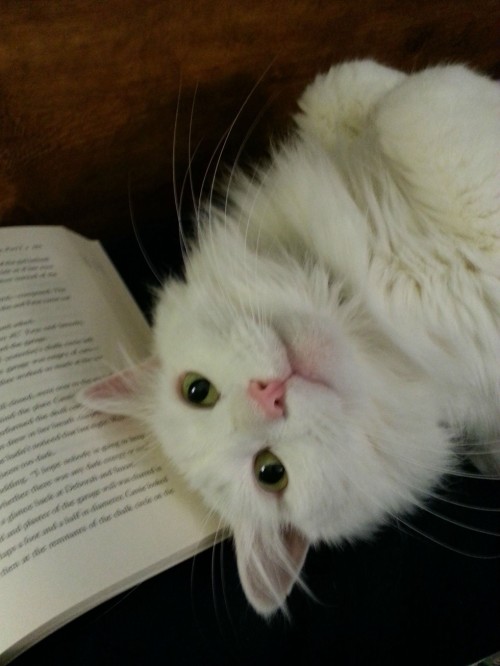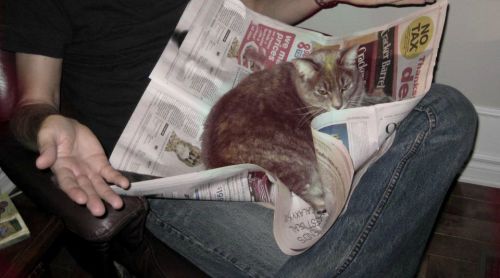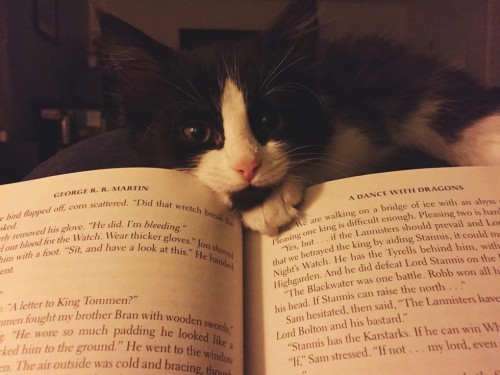192 posts
Latest Posts by twaeggy - Page 5
Fucking finally
every single person watching the Oscars (via supernaturalbiteclub)







Happy December from Hiro and Baymax! (x)

(via The Last Point of View Cheat Sheet You’ll Ever Need - DIY MFA : DIY MFA)
I will always remember Christopher Lee as that horrifying moment in the LOTR commentaries where Peter Jackson says he started to direct him on how to act like he’d been stabbed and Christopher Lee goes “no no peter dear, when someone is stabbed like this, THIS is how they look, they don’t make a sound, air just leaves them all at once” and peter jackson remembers in that moment that lee was in the secret service and just slowly backs away.
When writing couples, I like to use the Kiss Rule:
If they have to kiss for you to know they’re in love, you’re not writing a romance right.
I wish you good fortune in the wars to come.









Fallen London is a place of blurry fog and cloudy decisions, hurtling farther and farther into the endless night of the ‘Neath. Fortunately, you’re not alone. It’s a resource post!
groups
official forums
irc
skype (ask for an invite at deepdarkmarvellous)
art
paul arendt
deepdarkmarvellous
deviant art tag
onahiddenspire
what the cat dragged in
beginner’s advice
old access codes
failbetter advice
nitebrite advice
zoe’s powerpoint: 1, 2
sunless sea lore glossary
fanfiction
archiveofourown
ff.net
letters from fallen london
fangames
exile’s rose
fallen swindon
lmaoden
postman apocalypse
rat sending simulator
fan-tips, tricks, and secrets
ambition: enigma
hallowmas with the nitebrite
alzar’s indomitable velocipede squad
stats loss with nitebrite
the bazaar forum
lore
one wiki
two wiki
saint-arthur
tv tropes
the salons forum
music
radio free neath
8tracks
music thread
rp
delicious friends
livejournal
I had a bit of fun in the #VeryRealisticYA hashtag. Guess how many of these are autobiographical?
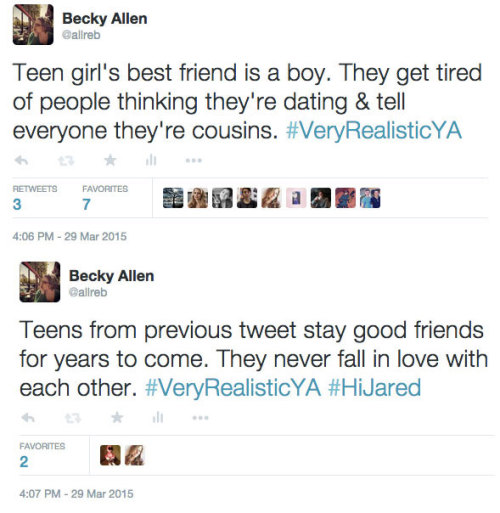
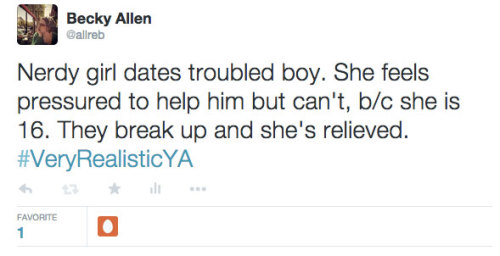
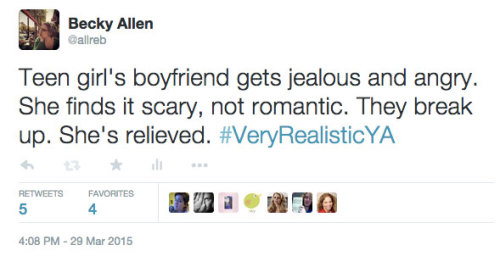
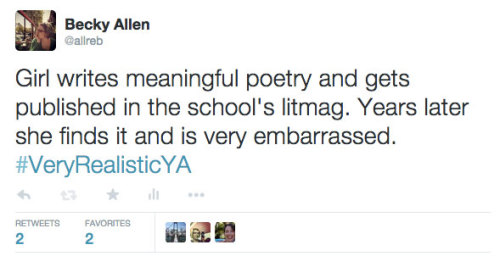
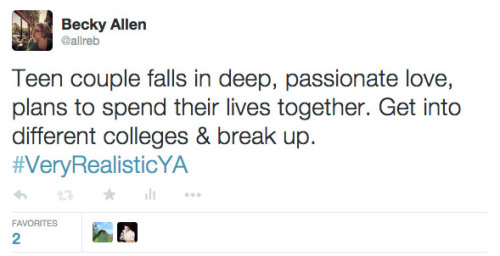
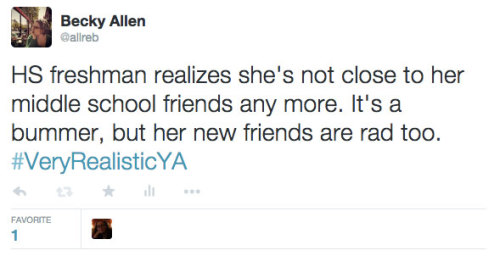
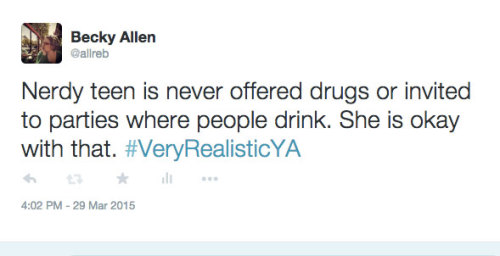
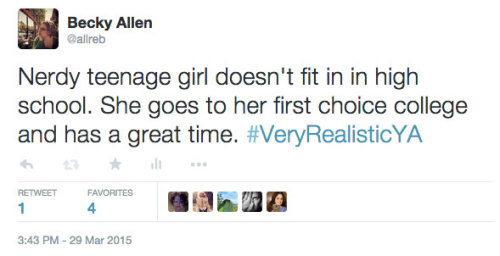


Lol 😂
What is "dreampunk"? I've head of it recently...& how would one go about writing a dreampunk novel?
It’s like if you took the plot of Inception, the logic of Alice in Wonderland, the setting of Bladerunner or Suckerpunch or any of the Bioshock games or Dune or whatever, and then put them all into one story.
This genre is extremely specific and there isn’t much out there in terms of literature, so I can’t really give examples of what’s been done and what tropes are necessary. At this point it’s kind of a hit or miss when entering the genre. The main requirement is that you include something relating to dreams/nightmares, but that doesn’t automatically make your story dreampunk.



why can’t people see kristen stewart is basically 98% of all tumblr users
by Sharon Crosby
It often seems that there are not enough online resources for writers. There are a lot of good books on the subject, but they cost a lot of money because the writing community is a relatively small niche. Here are 7 resources you can use whether you are a...
Let's Talk About: Point of View, a table of contents
Table of contents:
Part 1: An Introduction Part 2: Hello, My Name is First Person Part 3: I’m First Person and I Have Problems Part 4: Second Person Wishes You Hello Part 5: You Discover Tricks to Handle Second Person Part 6: Third Person Omniscient Says Hello Part 7: The Pros and Cons of Third Person Omniscient Part 8: Third Person Limited Joins In Part 9: Third Person Limited Admits Some Flaws Part 10: A Visual Guide to Psychic Distance
Anonymous asked: One piece of advice I hear given is to read books to learn how to write. How do I do that?
Some Writing Prompt Generators
Serendipity (names, places, mapbuilding, etc.) Quick Story Idea Full Story Idea Writing Challenges General Character Quick Character really just all of Seventh Sanctum RPGesque generators Writing Prompts Inspiration Finder Story Arc Fantasy Story Situaton Adventure Chaotic Shiny is just really good in general Random Plot
by Lazette Gifford
Description of main characters in first draft stories often fall into two wide categories — far too little or way too much. Writers see their characters and they want their readers to see them, too. However, sometimes they can go too far in description, especially in the main character.
What? Don’t you want the reader to see the main character just as he or she is? Yes, you do. However, you need to consider two things about readers. First, they have vivid imaginations and can ‘see’ characters without every detail drawn in. Second — and the more important of the two — the reader wants to connect with the main character in some way. This may mean that she wants to see the character as herself or she may want to imagine the character as a favorite star. If you give too much description, you erase that connection.
Read More →
Notice how every science fiction movie or television show starts with a shot of the location where the story is about to occur. Movies that take place in outer space always start with a shot of stars and a starship. Movies that take place on another world always start with a shot of that planet. This is to let you know where you are. Novels and stories start the same way. You have to give the reader a sense of where he is and what’s happening as quickly as possible. You don’t want to start the story by confusing the reader.
David Gerrold (via writingquotes)
Power comes with responsibility. The more power a character has, the more they are defined and confined by it. The fewer choices they will have. The easier it is for their actions to have massive, widespread unintended consequences continuously rippling outward. When they make a mistake, they will hurt more people than just themselves. More you have, the more cautious you have to be. The more you have to give up, the more you have to sacrifice, because circumstances outside of your control have decided you will not be like other men/women. That’s just a fact of life. You can say “But I don’t want it”. Well, tough. Suck it up. Deal with it or deal with the consequences.
Michi of howtofightwrite, “Would it be cliche or a poor choice…”
As usual, the mods of howtofightwrite nail the importance of power in character development to the effing wall, paint a gd dartboard on it, and proceed to stick only bullseyes. Hats off to them.
(via writeworld)

The Shapes of Stories, Kurt Vonnegut’s theories about archetypal stories.









